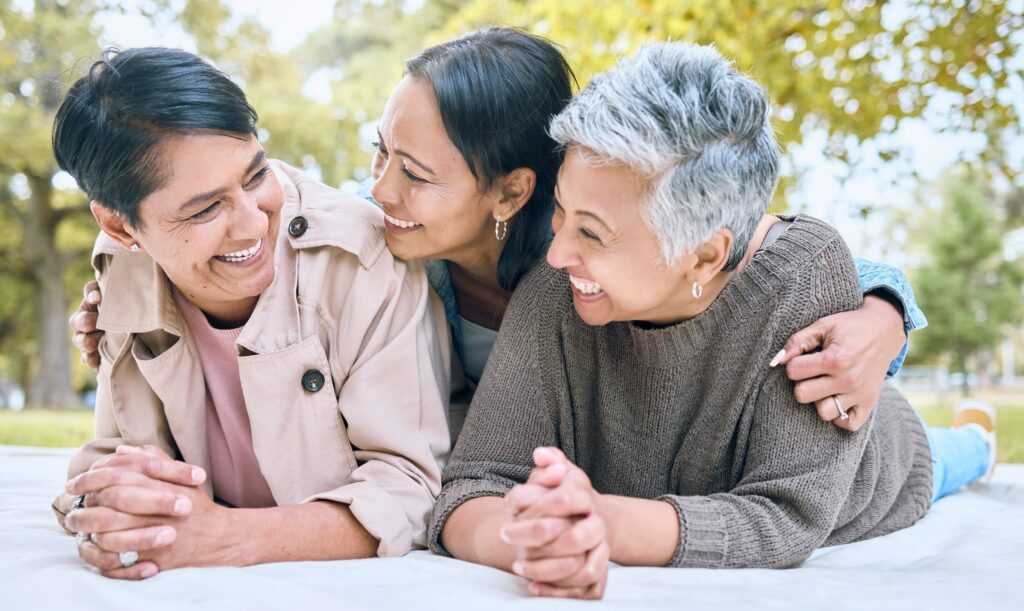Studies consistently show that members of the LGBTQ community are more prone to mental health issues. Indeed, they’re 2.5 times more likely to experience depression, anxiety, and substance misuse compared with heterosexual individuals.
These challenges stem from minority stress, ongoing stigma, and discrimination, among other factors. While this paints a bleak picture, acceptance, allyship, and support from loved ones can significantly improve things. Read on to discover 8 ways to support LGBTQ mental health.
Discover La Fuente’s LGBTQ-focused treatment programs by calling 888.903.9898.
The State of LGBTQ Mental Health
Before diving into the advice, let’s look at the state of LGBTQ mental health. Having a better understanding of this landscape will help family members and friends better empathize with their LGBTQ loved ones, as well as create effective strategies to support them.
- LGBTQ individuals are 2.5 times more likely to experience depression, anxiety, and substance misuse compared with heterosexual individuals.
- LGBTQ teens are six times more likely to experience symptoms of depression than their non-LGBTQ peers.
- 48% of transgender adults report having considered suicide in the last year, compared to 4% of the overall US population.
8 Ways to Support LGBTQ Mental Health
1. Examine your thoughts and biases
Even if you love and support the LGBTQ people in your life, you may be holding onto unconscious biases. For instance, you might assume that your son won’t give you grandkids just because he’s gay or hold onto the belief that there are only two ‘valid’ genders.
Take some time to reflect on and evaluate these ideas. Do this by questioning your assumptions about love, sex, and what it means to be part of a relationship or a family. Read books by LGBTQ authors to expand your understanding and challenge misconceptions.
It’s okay to have questions or make mistakes as you learn. The important thing is acknowledging and growing from them so you can better support your loved ones.
2. Learn about LGBTQ issues
Explore the lived experiences and challenges faced by LGBTQ individuals, including discrimination, societal pressures, and the impact of stigma on mental health. You can do this through books, podcasts, and documentaries.
Understanding these unique stressors helps you recognize when your LGBTQ loved ones might need mental health support.
Here are some resources to check out:
Books
- Headcase: LGBTQ Writers & Artists on Mental Health and Wellness edited by Stephanie Schroeder and Teresa Theophano
- Life Isn’t Binary: On Being Both, Beyond, and In-Between by Meg-John Barker and Alex Iantaffi
- Pocket Guide to LGBTQ Mental Health: Understanding the Spectrum of Gender and Sexuality edited by Petros Levounis
Podcasts
- Bottoming
- From Where We Stand: Conversations on race and mental health
- A Gay And A NonGay
- Outward
Documentaries
- Before Stonewall: The Making of a Gay and Lesbian Community
- How to Survive a Plague
- Paris is Burning
- Disclosure
3. Respect their identity
Respect the identities of LGBTQ individuals in your life by honoring their chosen way of living, loving, and identifying. Avoid pressuring them to conform to societal norms. Instead, use their preferred gender pronouns, accept their partners, and compliment their appearance.
4. Don’t “out” them without their permission
Many people think LGBTQ people only come out once, but it’s an ongoing process. Moreover, there are plenty of contexts where an LGBTQ person might choose not to be out.
Follow your LGBTQ loved one’s lead regarding how open they wish to be about their identity. And make sure to tell them that you support them however they choose to express themselves.
5. Create a safe and accepting environment
Many LGBTQ people face stigma and mental distress due to ongoing microaggressions, discrimination, and harassment. Support your loved ones by speaking out and taking action.
This might mean challenging hurtful remarks and misconceptions, educating others on respectful pronoun usage, or offering your presence in difficult moments. While you may not change the world alone, you can help create an environment of acceptance, love, and solidarity.
6. Encourage them to socialize
Having an active social life is vital for good mental health, and that’s particularly true for LGBTQ people. Help your loved one by finding local LGBTQ and ally organizations where they can participate in engaging events and build friendships. If in-person options are limited, assist them in exploring online communities.
Additionally, remind your loved one that socializing isn’t confined to LGBTQ groups. Encourage them to spend time with friends and family of all backgrounds to build a diverse support network.
7. Help them get mental health treatment
Even without a formal diagnosis of anxiety or depression, your LGBTQ loved one can still benefit from mental health treatment. Help them access these services by researching available options and choosing a therapist or facility that aligns with their needs. In particular, look for providers who have experience working with LGBTQ individuals. Furthermore, help address any obstacles to treatment, such as arranging childcare or offering financial assistance.
8. Donate to LGBTQ organizations
While there are plenty of things you can do to support the LGBTQ people in your life, you’ll have an even greater impact on the community by donating your time or money to LGBTQ organizations.
Here are some organizations to get involved with:
- The Trevor Project: A suicide prevention organization for LGBTQ people under age 25.
- Trans Lifeline: A peer support and crisis hotline offering support to transgender people.
- PFLAG: An organization dedicated to supporting, educating, and advocating for LGBTQ people and their families.
- SAGE: A non-profit working in service of older LGBTQ people, specifically with housing initiatives and training eldercare providers.
- Lambda Legal: A civil rights organization focused on LGBTQ communities and people living with HIV/AIDS through impact litigation, societal education, and public policy work.
LGBTQ Affirmative Treatment at La Fuente Hollywood
The LGBTQ community faces significantly higher rates of substance use disorders and mental illness compared to heterosexuals. A 2023 study by the Substance Abuse and Mental Services Administration found that sexual minority adults are two to three times more likely to use illicit drugs and experience mental illness.
These findings underscore the disproportionate burden of these issues within the LGBTQ community, emphasizing the urgent need for targeted interventions and support services.
At La Fuente Hollywood Treatment Center, we specialize in addressing these challenges. As one of the few LGBTQ-specific treatment centers in the country, our providers are members of the community, and all our interventions are tailored to meet the unique needs of LGBTQ individuals.
Contact La Fuente online to learn more about our LGBTQ addiction treatment program.




